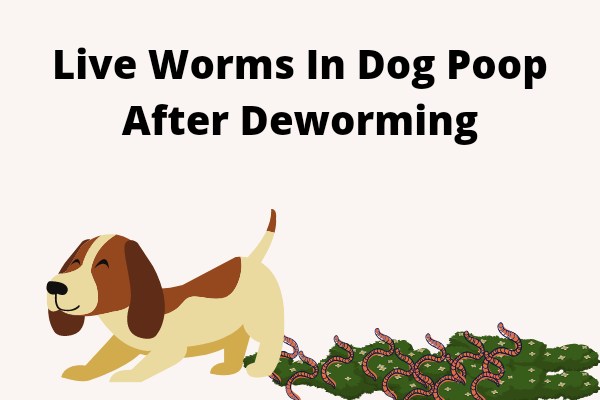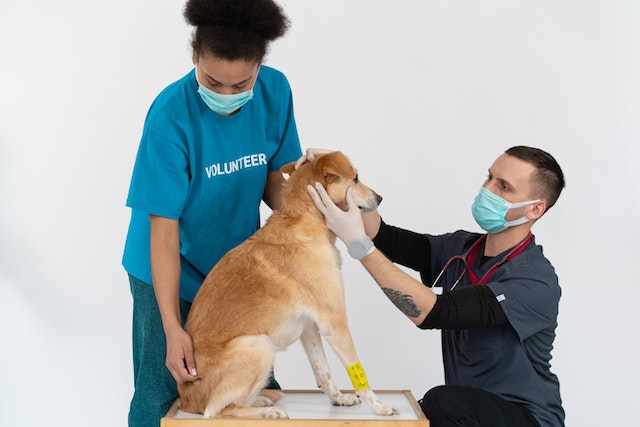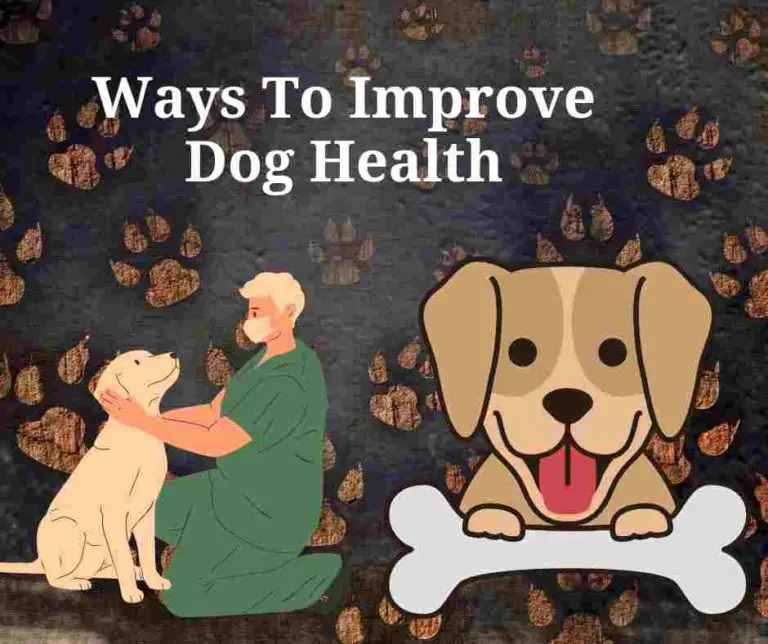Live Worms In Dog Poop After Deworming: 6 Reasons

Are you still seeing live worms in dog poop after deworming! Then this post will definitely help you figure out what is going on with your dog.
If you’ve ever had worms in your dog, you know how upsetting it can be. But there is good news: deworming medications are effective and available in a wide variety of forms to suit your dog’s needs.
Your dog does not need to be dewormed all year round. The usual recommendation is to have your pet dewormed at least once a year, and the best time is between fall and spring.
However, it depends on where you live and if your dog goes outside.
For example: If you live in a Southern state and your dog goes out on grassy areas, then you should worm your pup twice a year.
This is because worms can easily transfer from one animal to another by contact with the soil or grass.
Live Worms In Dog Poop After Deworming
Did you know that a dog’s poop can contain live worms after deworming treatment?
Yes, it’s called the post-deworming rebound effect. The old worms that had been killed by the medication produce more eggs, which cause the second round of infection.
These become alive again after being eaten by the dog, and they produce new eggs to infect other pets or people.
This increases the risk of reinfection and all types of worms including hookworms, tapeworms, and whipworms.
It sounds nasty, but it can be prevented with one simple step: washing your hands after touching your pet’s poop!
Be sure to read on for ways to help prevent this problem from happening in your home.
Find out, the six simple reasons why your dog has dead worms in its poop.
Reasons your dog still have live worms after deworming
Here are some common reasons why you still see live worms in your dog poop after deworming:
You used a cheap wormer medication
You most likely purchased a low-cost wormer containing Piperazine, which is nearly ineffective.
Use a high-quality product, such as a veterinary-recommended medicine, rather than some haphazard web study.
Over-the-counter medications are not always effective, so take your time following your veterinarian’s instructions and avoid taking shortcuts.
The age of the dog is a factor
Because no product destroys encysted worms in the pup’s tissues (which the pup received from their mother via the placenta or in the milk).
You’ll have to worm them every couple of weeks until they’re around 6 months old.
The wormer only works when adults are present in the gut, and migration from tissue to the intestine occurs at random throughout the first six months.
So, if your dog is less than six months, talk to your vet for professional advice.
Your dog was reinfected from eating it’s infected poop
After deworming, your dog will pass worms in its feces. This might last three to five days following deworming.
When you do not properly dispose of the feces, the eggs in the feces might reinfect your dog if he comes into touch with them.
Dog feces is the most common vector of worms and worm eggs, thus properly disposing of it is critical.
Potty training your dog will also prevent canine feces from ending up in the incorrect location.
A new worm life cycle started faster than expected
Depending on the worms’ growth circumstances, it might take as little as one month for the worms to reach the size that your dog can defecate out.
When the larvae reach the gut, they grow into adult worms and begin laying eggs, therefore restarting the cycle.
It takes around four weeks for an adult worm to develop in the gut of a dog or cat and begin producing eggs.
This can cause your dog to poop life worms even after you’re done with deworming.
Your dog was reinfected by another pet during deworming
When you are planning on deworming your dog, and you have other pets, make sure you keep them safe from each other.
If you have a cat or another dog, it’s better to keep the dog or cat in a separate room while you quarantine the pet.
Your dog can easily come in contact with fresh worm eggs while you are busily deworming your dog.
How to handle a worm-infested pet not to infect your dog while deworming
Here are some common tips in handling a sick pet not to infect your dog with worms during treatment:
- Remove the pet from the dog room or area as soon as you see any signs.
- If you are unable to sterilize the old bed, get a new one for the dog who is not using it.
- Place a new food dish in a separate room for your dog.
- Make certain that both pets do not share the same drinking bowl.
- Make a point of replacing your cat’s old litter box with a new one if you have a cat.
- Allow no interaction between your pet and dog until the dog has recovered completely.
- Don’t over-groom either of your pets while you’re treating the dog.
- Once your dog has been approved by the vet, take your other pet to the vet for a worm test or quarantine.
Live worms in poop mean medication hasn’t worked
If the worms are still dazzling white and wiggling, the medication may not have worked.
You may need to switch to another dewormer with a different active component because there are numerous different medications for getting rid of worms.
You must, however, wait a few weeks before doing so. You don’t want to overmedicate your dog or put him through unnecessary discomfort.
Talking to your veterinarian is the best thing you can do. They’ll talk you through your options and let you know when it’s safe to try again.
Find out if your dogs can get worms from your cats.
When should you deworm a dog
Dog pups must be wormed on a regular basis, generally until they are six months old; see your veterinarian for advice on the best method to utilize their products.
Adult dogs should be dewormed at least four times per year, and more frequently if young children live in the house.
Females must also be wormed when pregnant, nursing pups, or 30 days following the end of a season.
Always seek the advice of your veterinarian on worming regimens and frequency.
It is also essential to clean up after your dog and dispose of excrement on a regular basis, especially in your own garden, where egg numbers can quickly build.
Find out more on how dogs get worms.
How to stop a dog from getting reinfected with worms after deworming
Here are some tips on how to prevent worm reinfection after deworming your dog:
- Do not buy a cheap over the counter drugs.
- Take your dog to the vet once you notice any signs of worms.
- Always follow the vet prescription of giving your dog any worm drugs.
- Make sure you keep other pets away from your dog during and after deworming.
- Make sure you keep a good fleas control spray or system in place before deworming.
- Always clean up your dog poop and disinfect the poop spot.
- Do not over grooming your dog during deworming.
- Always keep a close look on your dog weight and poop.
Find out more if your cat can get worms from dogs.
How to know your dog has worms
Here are some signs your dog has worms:
- Unexpected weight loss
- Unnecessary excessive coughing
- Dull coat
- Continues difficulty in breathing
- Distended abdomen
- Diarrhea
- Poor appetite
- Skin lesions
- Sudden collapse
- Vomiting
- Unexpected dehydration
- Lethargy
Find out if humans can get worms from dogs.
Most common worms found in dogs
Here are the most common types of worms found in dogs:
Tapeworms
Tapeworms can be transmitted to dogs by infected fleas. By chewing on an irritated place, your dog may inadvertently consume a flea.
The eggs of the flea will hatch if they are eaten. The worm will then hook onto the intestines and develop to a length of up to 8 inches.
Tapeworms are one of a kind in that they grow in segments. These pieces can come loose and end up in your dog’s feces.
They’re rectangular and flat. Eggs can also accumulate on your dog’s anus, causing it to slide around the floor. Small sesame seeds resemble eggs.
Hookworms
Hookworms can be passed down to your puppy from their mother or by digesting contaminated feces.
Because of their fangs, these worms are appropriately called. They literally latch onto your dog’s digestive wall.
This might result in bleeding and anemia. If not treated promptly, your puppy may grow weak and pallid. Hookworms can potentially be fatal.
Whipworms
Whipworms are thread-like parasitic parasites that are very small. The big intestine is where they are most often found.
Whipworms in pups can cause malnutrition and anemia, among other symptoms. Your dog’s feces may also include blood.
Because whipworms can only be identified under a microscope, your veterinarian will need stool samples to diagnose them.
If left untreated, whipworms can be fatal, therefore it’s important to get treatment as soon as possible.
Roundworms
Roundworms are quite prevalent. Puppies can become infected while still in their mother’s womb or by drinking breast milk.
Roundworm eggs can be discovered in the soil, on plants, on dead animal carcasses, and in the feces of an afflicted animal.
They are smooth, spherical, and white. Some claim they resemble living noodles.
Read more interesting topics:






